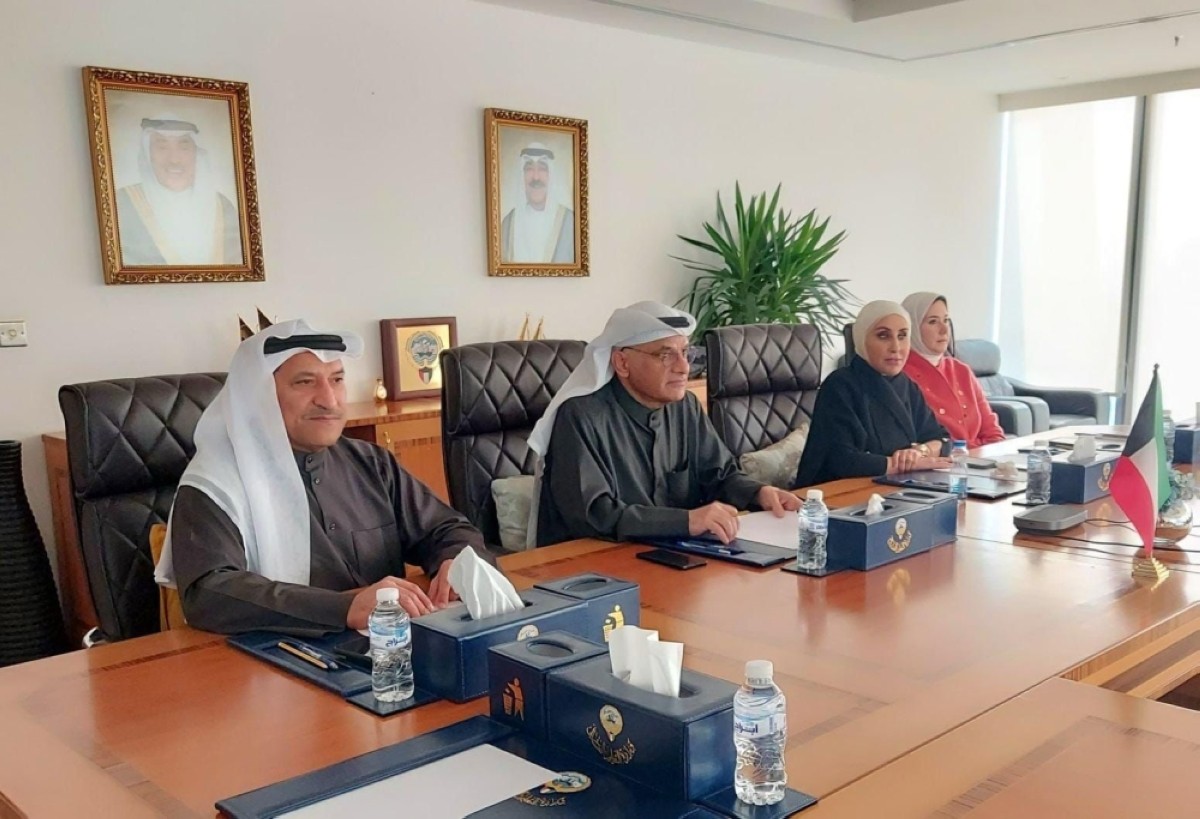KUWAIT: The higher education ministry is planning to open support offices for its cultural offices abroad, Dr Nader Al-Jallal, Minister of Higher Education and Scientific Research, announced Sunday. This initiative aims to enhance the ministry’s engagement with Kuwaiti students studying abroad, further supporting the country’s ongoing efforts to develop national competencies.
The announcement followed a virtual meeting with the heads of the ministry’s cultural offices, where key topics included the number of Kuwaiti students studying abroad, particularly in fields like medicine, and how these numbers align with the needs of Kuwait’s local workforce. At the meeting, Dr Al-Jallal acknowledged the academic challenges faced by students abroad, particularly regarding English language proficiency, and proposed revisiting the IELTS score requirements for scholarship eligibility.
The minister also stressed the need for increased collaboration with international universities. He emphasized that expanding scholarship opportunities and forming new academic partnerships would provide Kuwaiti students with greater access to diverse educational opportunities and enhance their global competitiveness.
The meeting was attended by Acting Undersecretary Lamia Al-Melhem, Director General of the National Authority for Academic Accreditation and Quality Assurance of Education Dr Jassim Al-Ali, and Acting Assistant Undersecretary for Scholarships Ghaida Madhkour.
During the meeting, Dr Al-Jallal emphasized that this initiative is part of a broader, comprehensive strategy to enhance the study-abroad scholarship program, which plays a key role in building the Kuwait’s human capital. He stressed that the program is critical to developing Kuwait’s educational sector and contributing to the achievement of sustainable development and a knowledge-based economy.
Dr Al-Jallal also discussed the crucial role that cultural offices play in the academic journeys of Kuwaiti students abroad. These offices serve as vital links between students and international educational institutions, as well as connecting them to the Ministry of Higher Education. The Minister noted that the new support offices would strengthen this network and ensure better communication, allowing for the rapid resolution of any academic issues that students may face.
One of the key topics raised during the meeting was the need to align the number of students sent to study in medical fields with the Ministry of Health’s anticipated needs over the next five years. The officials also discussed the number of students being sent to study in other disciplines and whether those numbers align with the requirements of various sectors within the country.
The minister acknowledged some academic challenges faced by students, particularly in relation to English language proficiency, and proposed reviewing the English language requirements, such as the IELTS score needed for scholarship eligibility.
Dr Al-Jallal also encouraged further collaboration with international universities, aiming to expand scholarship opportunities and create more academic partnerships that would benefit Kuwaiti students. He emphasized the need for these collaborations to align with the nation’s strategic objectives, ensuring that the next generation of graduates is well-equipped to meet the demands of Kuwait’s economic and social development.
Al-Ali emphasized the importance of maintaining the quality of education at foreign institutions, stressing the ministry’s efforts to ensure that only accredited universities are included in Kuwait’s scholarship program. He outlined efforts to monitor academic institutions abroad and provide continuous quality assessments to ensure Kuwaiti students receive high-quality education.
Madhkour said the scholarship sector is undergoing significant transformation, with continued efforts to improve the services provided to students. She emphasized that the ministry is working hard to develop a supportive environment for students to thrive in their academic pursuits.
The meeting concluded with a strong commitment from all parties to continue enhancing the scholarship system, strengthen communication between the Ministry and cultural offices, and ensure that Kuwaiti students abroad have the resources and support they need to succeed academically and contribute to Kuwait’s future development. — KUNA


